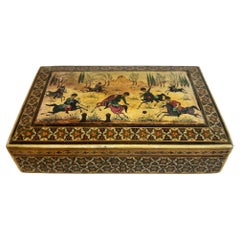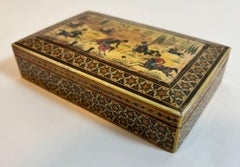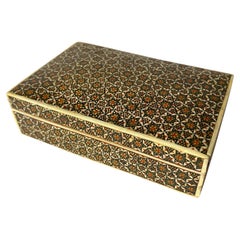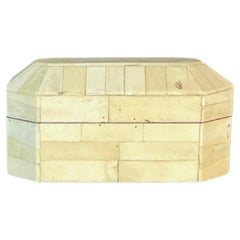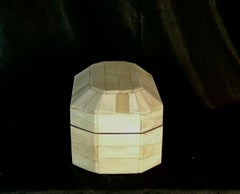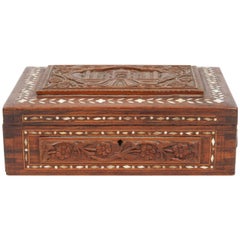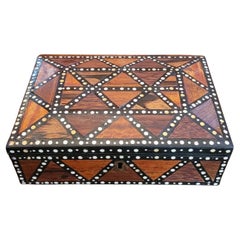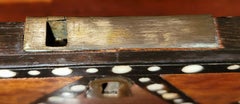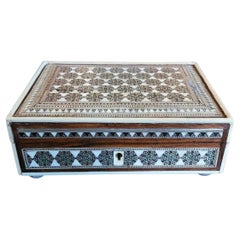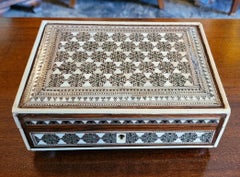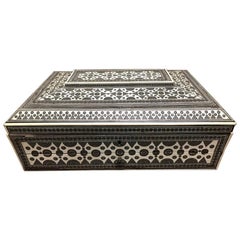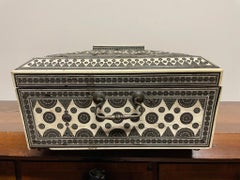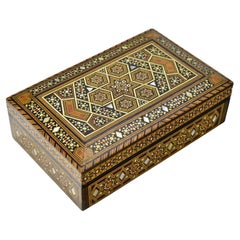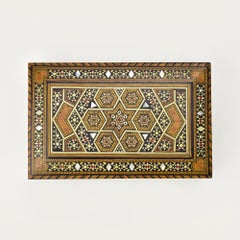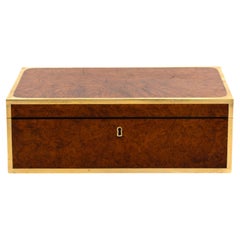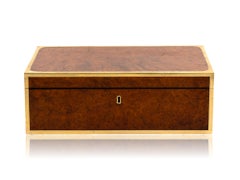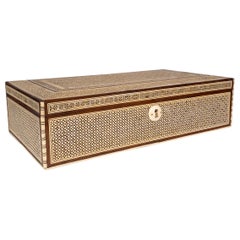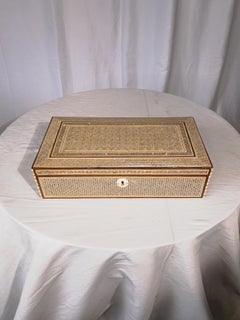Antique Persian Khatam Micro Mosaic Inlaid Jewelry Box circa 1940s
Located in Moreno Valley, CA
Antique Persian Khatam Micro Mosaic Inlaid Jewelry Box with Miniature Polo Scene, circa 1940s This exquisite Persian Khatam Kari trinket box is a rare example of masterful micro mosaic marquetry, handcrafted in the 1940s using the ancient Persian art of inlay. Featuring an intricately detailed geometric design and a miniature hand-painted equestrian scene on the lid, this museum-quality piece is a stunning representation of Indo-Persian and Moorish craftsmanship. Khatam Kari, or Persian marquetry, is a centuries-old decorative art that flourished during the Safavid dynasty. It involves the meticulous inlay of thousands of tiny pieces of wood and bone into intricate, repeating geometric patterns—each symbolic of harmony and cosmic order. The top of this box is adorned with a finely rendered painting of royal figures on horseback, possibly princes engaged in a ceremonial game of polo, echoing the refined court culture of the 19th-century Persian and Mughal aristocracy. The box’s micro mosaic surface is covered in richly detailed star and polygon motifs typical of Khatam and Sadeli mosaic traditions. These patterns require precise mathematical planning and exceptional artisanal skill, resulting in a surface that is as intellectually complex as it is visually stunning. Details: * Origin: Asia Indo-Persian * Date: Circa 1940s * Materials: Inlaid woods, camel bone, hand-painted miniature * Style: Islamic Art, Moorish, Anglo-Indian, Micro Mosaic * Dimensions: Height 1.5 in. x Width 6.5 in. x Depth 4.25 in. * Condition: antique condition with minor wear consistent with age These boxes were traditionally used to store writing instruments or jewelry, and today they serve as timeless collectors' pieces, suitable for display or thoughtful gifting. Comparable examples can be found in major Islamic art collections, including the Doris Duke Museum of Islamic Art. Keywords: Persian Khatam Box...
Mid-20th Century Indian Anglo-Indian Jewelry Boxes
Bone, Fruitwood
